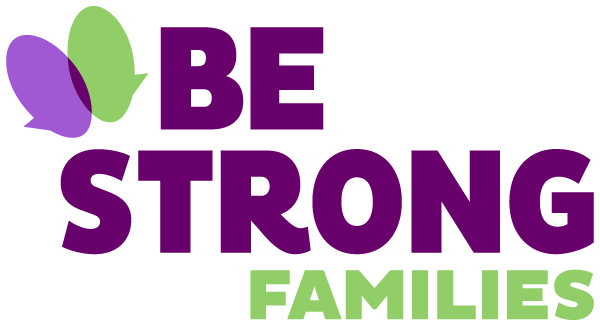Some of My Best Friends: A Personal Narrative of Love and Racial Equity
In this blog series, I’ve spoken about my commitment to racial equity and undoing the damage systemic racism has caused all of us. I’ve called out performative allyship, stressing that authentic engagement must come from gut-level and heart-level understanding, born of personal experiences that reveal the real benefits of DEI work. One question that lingers, even if unvoiced, is: Why? As a white person, even my own mother once asked me, “Why don’t you like white people? Why don’t you seem to trust people like you?”
Most obviously, I have personal stakes in racial equity. I adopted an Ethiopian eight-year-old, my beloved son. I understood early on that his positive identity would depend on my surrounding him with people who looked like him. I sought out pediatricians and professionals with dark skin, learned some Amharic, and made Ethiopian culture a part of our lives. I expanded my circle of friends so that Mengistab could see I genuinely loved and valued people with dark skin beyond just him.
More importantly, adopting Mengistab opened my eyes to the systemic racial inequities embedded in our social structures. After him, I spiritually adopted two more Ethiopian young men and have built close relationships with many other BIPOC friends and mentees. I love my kids deeply, and it breaks my heart to witness them being stereotyped, disadvantaged, and discriminated against. Like many Black mothers, I live with the fear that a simple traffic stop could end in tragedy. Loving them and wanting to protect them diminished my trust in white authority figures—like police officers—whom I trusted implicitly growing up. My journey into allyship truly began when I became the parent of a Black child.
Then, I fell in love with a Black man— who met me spiritually, intellectually, and physically. He became my business partner, teacher, travel companion, and best friend. He made my whiteness visible to me—defining it, observing it, and critiquing it. This was often extremely uncomfortable: his exasperation palpable, his critique harsh, direct, brutally honest. And I am a stubborn and hard-headed Taurus.
At first, I resisted with all my ego. After all, I am extremely well-educated by society’s standards, a summa cum laude Princeton graduate. He hadn’t even started, much less finished college. But as I slowly acknowledged my hubris, I realized that my ego—probably embarrassingly obvious to every awakened BIPOC person I knew—was finally becoming visible to me. Every historical fact he told me, which I initially rejected as impossible, turned out to be true when I fact-checked it. Loving, respecting, and trusting him allowed me to transcend the emotional turbulence and pain that often accompanies waking up to the reality of racial inequity.
This love and growth eventually led me to found Be Strong Families, committing myself to disruption, co-creation, allyship, and honoring lived expertise alongside academic credentials. Recognizing my own limitations and valuing his insight and brilliance allowed me to uplift the wisdom, beauty, and intelligence of my BIPOC colleagues and the families we serve.
Love shifted my perspective, allowing me to see the world through the eyes of others. This journey began long ago during my undergraduate and graduate studies in cultural anthropology and through my feminist awakening, which made me keenly aware of how patriarchy constrains women’s experiences. The racial justice lens that emerged altered who I trusted and where I felt safe. It also made me see white people in a different way, one that did not enhance my love for them or for me as part of them. It propelled me to seek out teachers and friends who could deepen my understanding of allyship—people like Pam Brown, Erwin McEwen, Bryan Samuels, Yoland Trevino, Denise Boston, Alexandra James, Yoli Maya Yeh, and Tecoria Jones.
I know I am perceived as white and that people make assumptions based on that identity. I’ve had to travel the world carrying this identity, even though it’s not how I see myself. At one point, I hated my ancestors. I distanced myself from my white friends, from people who looked like me. I was furious that others couldn’t enjoy the privileges I had—such as being able to open a can of soda in a store before purchasing it or test drive an expensive car without suspicion. This angry and self-hating stage is common, I’ve learned, in a lot of people’s racial equity journeys.
In recent years, as I’ve grappled more deeply with the complexity of racial equity work and reconnected with my family of origin, I’ve softened toward myself. I’ve experienced betrayal by people I thought were allies (because allyship goes both ways, right?), but this pain brought clarity. I realized that self-loathing or hating my history doesn’t serve anyone or any cause. It’s maladaptive to reject my gifts or credentials or the gifts or wisdom of others. I’ve learned that true racial equity work is about love and acceptance and celebration, including of myself. It aligns with the wisdom of Hillel: If I am not for myself, who will be for me? If I am only for myself, what am I? If not now, when?
As I’ve deepened my self-acceptance, I’ve found it easier to connect with others who look like me. I’ve sought a truly diverse cadre of allies and teachers, and now, Mom, I can say with a smile: Some of my best friends are white.
